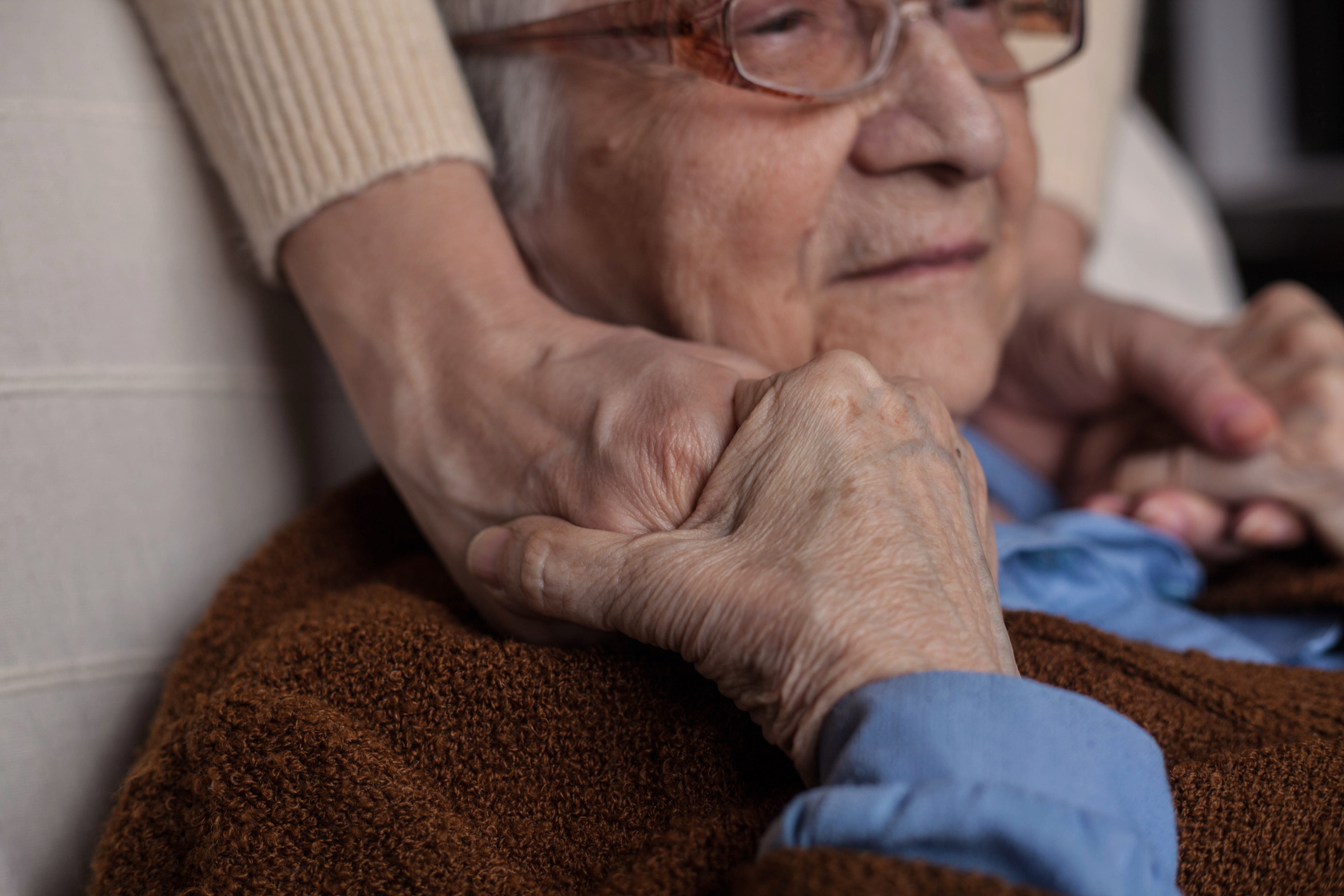
Support for family caregivers who are managing late stages of Alzheimer’s symptoms is critical.
Getting the news that your older loved one has been diagnosed with Alzheimer’s disease is life-changing. Thinking through the many elements and factors associated with the disease as well as its impact, both now and in the future during the late stages of Alzheimer’s, can be overwhelming.
In this three-part series, we’ve examined the early, middle and later stages of dementia, outlining the type of care needed during each stage, what family caregivers can expect, and how Morning Glory Home Care can help.
Late Stages of Alzheimer’s: Symptoms and Care Needs
In the late stages of Alzheimer’s, symptoms and care needs become much more pronounced. It’s extremely important to ensure safety and comfort, something that becomes more challenging as the older adult loses the ability to communicate verbally. Self-care for the caregiver is also crucial in this stage, as providing care can be both physically and emotionally draining.
Here is what you might expect to experience during final-stage Alzheimer’s:
Greater Care Needs:
- Assistance with walking (and then transferring when walking is no longer possible)
- Attentive help with drinking/eating, as swallowing becomes difficult
- Round-the-clock help with personal hygiene needs
- Monitoring for and addressing any physical health problems
Ways to Help
As the senior will lose the capacity to express how she/he is feeling and what exactly is needed, you’ll need to pay close attention to nonverbal cues. Proactive care can be achieved through thorough planning of the older adult’s day, making an effort to stick as close to a routine as you can for mealtimes, using the bathroom, exercise/repositioning, etc. These recommendations can help ensure the senior gets the best quality of life and dignity.
Meals:
- Encourage as much independence as possible. Provided that the older adult can still self-feed, allow plenty of additional time and serve foods that are easier to manage, such as finger foods in small, bite-size portions.
- Ensure the individual is sitting upright during mealtime, and also for a period of at least 30 minutes after eating.
- Provide plenty of liquids. The senior might have lost his/her feeling of thirst, and may even forget to drink.
- Keep a close watch on the senior’s weight. Even though some amount of weight loss will be expected during this stage, it’s essential to see the physician when noted for recommendations.
Using the Bathroom:
- A bedside commode can be extremely helpful in this stage. Help the older adult as necessary for safety, but again, let him/her manage as much of the task as possible independently.
- Reminders to utilize the toilet at regular intervals during the day can help prevent an accident.
- It is wise to keep adult diapers and absorbent pads on hand to use as needed, especially overnight.
- The senior may not have a daily bowel movement. However, seek advice from the doctor if he/she appears to be constipated, and especially if it has been more than a few days since the last bowel movement.
Personal Care:
- Keeping the senior’s skin clean and dry is very important in order to avoid sores. A regular bath/shower is not necessary, however. A bed bath can be just as effective.
- Make sure your loved one changes position at least every 2 hours. If bedbound, use pillows or foam wedges to relieve pressure, and learn proper turning and repositioning techniques.
- Incorporate physical movement into each day, based on the physician’s approval and recommendations. Even just lifting and bending the legs and arms can help prevent joint freezing.
You can create a soothing environment for the older adult by focusing your time and energy on sensory stimulation, for example:
- Reading out loud
- Playing or singing his/her favorite music
- Sitting outside when weather allows
- Smoothing scented lotion onto the skin
- Baking a favorite treat
- Reminiscing together through photo albums
- Bringing in a pet therapy animal for the older adult to pet or hold
Reach out to the award-winning dementia care team at Morning Glory Home Care for additional ideas to allow for the best quality of life for a senior loved one in late-stage Alzheimer’s. We’re here around the clock to help just as much or as little as you’d like.
Email or call us any time at 618-667-8400 to find out more about our home health care in Alton, IL and the surrounding communities.
